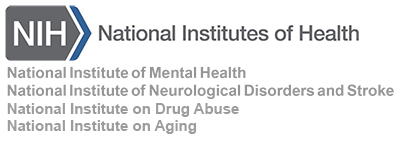Sample Collection
There are two pathways by which NNTC sites collect samples:
Pathway 1
Pathway 1
- Recruitment - live volunteers are prospectively recruited from clinics, hospitals, and local communities
- Screening - volunteers are assessed for study eligibility
- Informed Consent - volunteers and/or their legal guardians are assessed for ability to provide informed consent
- History - participants and/or informants provide a medical, neurological, medication, psychiatric, and/or substance abuse history by administration of standardized questionnaires and medical records, if any
- Examinations - participants receive a neurological exam, neuropsychological tests, a psychiatric assessment that includes the CIDI and BDI (in earlier years of the study PRISM was used in lieu of the CIDI), and medication adherence/Activities of Daily Living questionnaires
- Laboratory - blood is collected for CBC, CD4+ T cell enumeration, plasma HIV load, and research samples of PBMC, serum, and plasma are stored. Urine toxicology is run, and optional CSF is collected for WBC count, total protein, glucose, and HIV load. Most participants also receive a RPR, serum albumin, and HCV antibody at entry. Additional labs may be available but are generally culled from the medical charts
- Tiering: Medical history updates, examinations, and laboratory are repeated every 6-24 months depending on the participants’ health and/or likelihood of loss to followup. Some may be followed by telephone only.
- Upon the participant's demise, a post-mortem exam is conduced and tissue is stored.
- The NNTC is contacted after an individual expires.
- The decedent's family/legal guardian provides informed consent for tissue donation and release of medical records, if any.
- A post-mortem exam is performed and tissue is stored.
Horizontal Tabs
This page is associated with a larger collection of pages. You can view them as a whole here.

